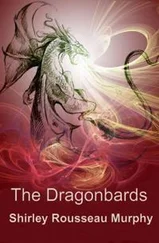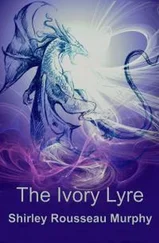He looked at Rory and winked.
"Still have to rig the throttle choke toggle switch," Rory said. "And get the controls brought in from the tail and the ailerons. But come on, sonny, let's get the prop on this baby and give her a whirl."
Charlie held one end of the prop, while Crispin lifted the other. Rory fitted the prop's hole over the engine shaft, put the nut on, and tightened it down. Then he got down from the cigar box he'd been standing on and fitted a funnel over the opening to the gas tank.
"Pour some of that gas in her, sonny." Charlie did, and Rory climbed into the front cockpit and nodded for Charlie to spin the prop. Charlie pulled the prop through slowly a few times, then spun it. Nothing happened. He spun it again and nothing. Again and again, and the engine didn't even cough.
Oh boy, Charlie thought. What if she never runs! All that work on the plane and . . .
Then on the tenth spin she coughed, caught, coughed again . . . and died.
"Again!" Rory shouted. Charlie spun. She sputtered and died. They checked the action of the needle valve. "It's been a long time since she's run," Rory said.
The twelfth time Charlie spun her, she sputtered and held—she roared. Charlie reached behind the spinning prop and retarded the spark. Later Rory would be able to do that from the cockpit. Now she purred.
They grinned at each other through the windshield. But she purred like a pussycat with hiccups, Hic-up. Hic-up. Hic-up. They shook their heads. It was the points. She'd need new points, all right. But she was running. She was really running!
She sat shaking and rumbling, straining to be free, to loose herself from her tiedowns and lift into the sky. Rory was grinning from ear to ear.
Then she died completely, and when they tried to start her again, no luck. "Condenser," Rory growled at last. "Flappin' faulty condenser. They'll do that. Okay 'till they get warm, then, phlooey. Just our flappin' snakebit luck!"
"Oh, boy," Charlie said. He'd been afraid of this. "Hobie'll never have a condenser. I'll ask, though. Then I'll write to those people I wrote to about the spark plugs and the points. I haven't heard from one yet."
Charlie had thought Rory would be even more upset about the condenser than he was. Maybe he just wasn't letting on. The kangaroo rat stood looking at the plane with her new prop on, and his whiskers twitched into a big grin. "Don't she look fine, sonny! Say, you'll find that condenser, all right. You just write some more letters." Rory took up a wire brush and began to clean some cable. "Going to have to give her a name pretty soon. It don't seem right, keeping her nameless. Wish I knew what her real name was, what kind of plane she is. I'd guess this old biplane must have been built in the early twenties. Seems as if I've seen a picture like her somewhere—I've been wracking my brain trying to remember. Could have been any one of those old flying magazines at Turbine Field. Why, she might be the last one of her kind in the whole world."
"I could go over to the airfield and look in the flying magazines," Charlie said. "There're stacks of them over there. Her picture might be in one. They're all in my dad's office in the hangar, and I know where he keeps the key."
"Well say, sonny ..."
"We could all go!" Crispin cried. "We could help you look, Charlie!"
Charlie considered. What harm could it do? "Okay," he said at last, "We'll do it. We'll go in the morning, first thing. There're probably some warm Cokes in the office. I'll bring the sandwiches."
CHAPTER 12
on his way home Charlie stopped in the middle of town to watch old Mr. Trimble erect a scarecrow covered with shiny foil and bits of dangling tin. Charlie didn't think that would work on the starlings, but he didn't say anything.
Mr. Trimble saw him watching and looked sheepish. "I don't think this'll work, Charlie, but a fellow has to try something. I plan to hoist it up there under the streetlight where they flock at night, so the light'll shine on it. Have to try something," he repeated. "Say, you see this, Charlie?" Mr. Trimble hauled some worn, folded magazine pages out of his pocket. "Mrs. Strugg gave it to me. It tells all about starlings. It's from an old copy of Sports Illustrated." He unfolded the creased pages. "It even tells about a study made of them by the U.S. Department of Agriculture. Listen: 'It was generally believed—that birds do not go out of their way to browbeat other birds just for the pleasure of it. But that is what starlings did to bluebirds. Two bluebirds built their nest high on an elm tree in Norwalk, Connecticut, in spite of the raucous jeering of starlings gathered around watching them. The bluebirds finally left without nesting. A birdwatcher hurriedly built a birdhouse and the bluebirds returned and began putting nesting material in it. In their absence the starlings entered the birdhouse and threw out the nesting material. The bluebirds put it back. The starlings threw it out again. This went on for three days . . . finally the male bluebird was found dead beneath the birdhouse: the reasonable suspicion was that the starlings had something to do with its demise.' "
"My gosh," Charlie said. "And that was in a government report?"
"S'right here, Charlie." Mr. Trimble held out the magazine. "And look, here it says something about starling invasion! Skrimville isn't the only place this has happened. And it tells how they perched near the bluebirds and stared, wheezed and whistled."
"That's what they do, all right," Charlie said. He flicked a piece of dangling foil on the scarecrow. "Sure hope this thing works, Mr. Trimble."
"I don't know, Charlie. I really don't think it will. But a fellow has to try something, doesn't he?"
Charlie went on down Main Street, and as he passed the music store he saw Mush lurking in the shadows trying not to be seen and heard someone playing piano scales badly from the music store's lesson room. Charlie turned the corner, out of Mush's sight.
When he got home, there was a letter from his dad in the mailbox. Mrs. Critch was out shopping. With the house to himself, Charlie took his time making a triple decker sandwich, then he took it and his dad's letter to his room. It was not a very long letter, but it told him a good deal about the latest attempts to have the garbage dump closed and plowed under so the starlings would leave and the airfield could open again.
The county says it's up to the state to close the dump, his dad said. And wouldn't you know, the state says it's up to the county. And the town won't do it because three other towns use that garbage dump and they don't want it plowed under. In other words, his father said dryly, It's the same old buck-passing we've been getting all along. His dad had two or three harsher things to say about the state and county governments and ended by hoping that Charlie was getting along all right with Mrs. Critch and to call him if she got out of hand. Charlie grinned, tucked the letter into a safe place, and wrote a short note to his dad to tell him he was going to use the machine shop key to take a look at those old magazines.
He sure hoped that, if they plowed the garbage dump under, Rory would be finished with the plane. Even if the trash dump wasn't plowed up, there would be a lot of activity out there. He sat staring out the window, wishing he could snap his fingers and make the starlings disappear. He was so lost in thought he didn't realize he was looking at heavy rain clouds until he saw a platoon of starlings wheeling beneath the dark sky screaming angry defiance at it. They must be looking for shelter from the rain because it was too early for them to be roosting. This was only a small band, he couldn't see the rest. The first big drops began to fall, and Charlie wondered suddenly if the piano box roof would leak. He could imagine a drenched airplane and two soggy animals, wet beds and, worst of all, wet balsa wood and paper. He dropped his sandwich, raced to the garage through the beginning downpour, rooted among junk for the plastic drop cloths his dad used for painting, stuffed them in his jacket, and took off for the dump as the rain came down really hard. He saw Mrs. Critch's square bulk hurrying down the street toward him, loaded with bundles. He swerved his bike away as she yelled and pretended he didn't hear her. The rain poured down his collar, plastered his hair to his face, blurred his vision. He pedaled harder. He tried to remember how much stuff was piled on top the piano crate that might keep water off.
Читать дальше
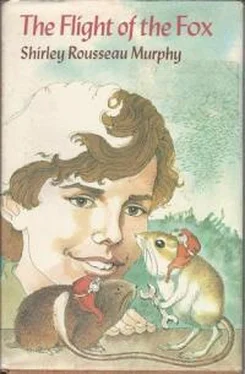
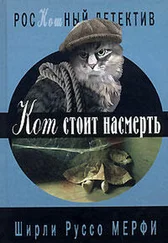
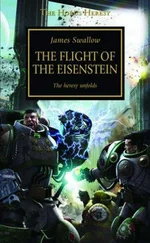

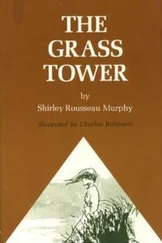
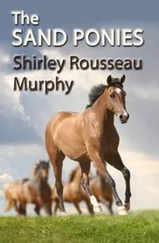
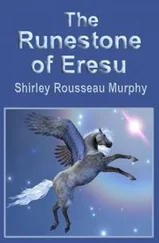
![Ширли Мерфи - The Shattered Stone [calibre]](/books/436059/shirli-merfi-the-shattered-stone-calibre-thumb.webp)
